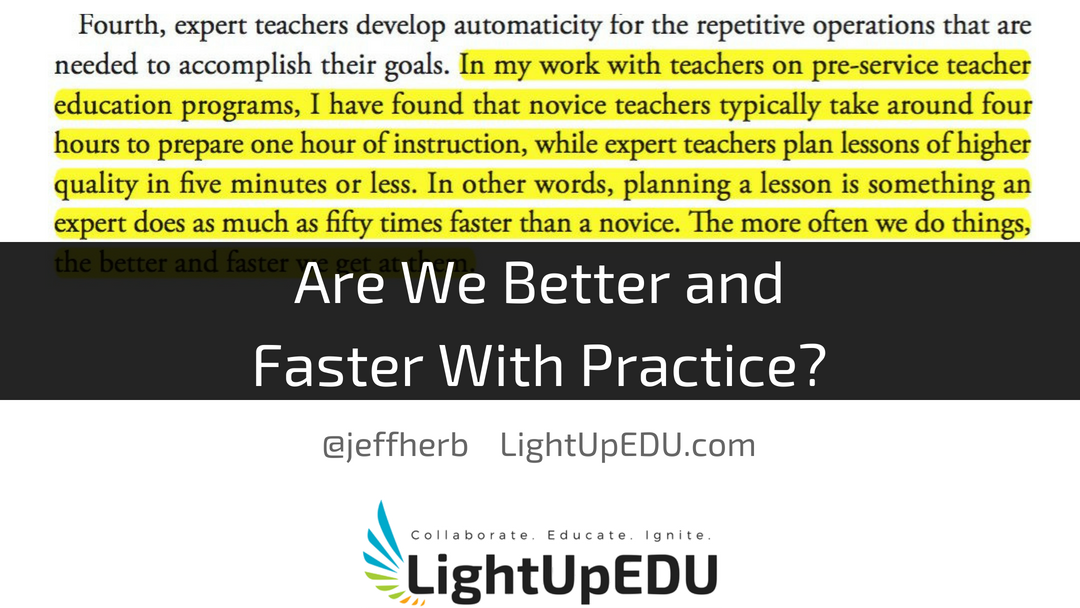I typically set aside about 10 minutes to peruse Twitter each morning. Yes, I need a time limit – otherwise, I would fall down the rabbit hole and surface again at lunch…not entirely productive.
Today, I came across this tweet from Oliver Lovell referencing research by Dylan Wiliam regarding the differential in planning time between novice and veteran teachers.
This is an incredible stat about the differential planning times of expert and novice teachers. From @dylanwiliam 's 'Leadership for Teacher Learning'. pic.twitter.com/KT6RjspsKZ
— Oliver Lovell (@ollie_lovell) August 28, 2018
According to Wiliam’s research, novice teachers take approximately four hours to plan one hour of instruction, whereas veteran teachers can plan the same or higher quality lessons in around five minutes. The difference is staggering and was shocking – but after thinking about it and doing some math, I feel as if it makes sense.
Malcolm Gladwell’s book, Outliers, cites that it takes 10,000 hours to become an expert at just about anything. If teachers practice their instruction (and planning) for 180 school days, eight hours each day, they practice their craft 1,440 hours a year. So, to say that after almost seven years you have put in 10,000 hours of practice wouldn’t be a stretch. I’d also (entirely subjectively) argue that it is typically around that point in a teaching career that teachers start feeling like they have a pretty good handle on their instruction.
So, this prompts me to think of a few questions (most of which I don’t have answers to):
- Is this why there are issues retaining teachers in the profession for longer than five years? Especially if it takes 7+ years to master the art of lesson planning?
- How do we support novice teachers? Is it right to give them lessons to use? Is spending four hours to plan one hour of instruction part of the process of being able to design lessons at the sub-five-minute pace? Does that matter?
- Knowing that novice teachers are spending that much time (or potentially should be spending that much time planning), in what ways do we lighten the load for them in the first few years? Or, is that wrong? Typically it’s the new teachers that are also called upon to coach, sponsor, and volunteer, too. Is that a good practice?
I go back and forth on each of these and would love any input from our readers as to your thoughts. Also, if you have a minute, read the responses to the tweet linked above – it’s a pretty interesting conversation and quite differing perspectives are shared. Share yours in the comments or on this article’s post on our Facebook page.



Get new posts in your email!
Join our mailing list to receive the latest posts from LightUpEDU! We will never spam you, promise!
Please check your email to confirm your subscription!